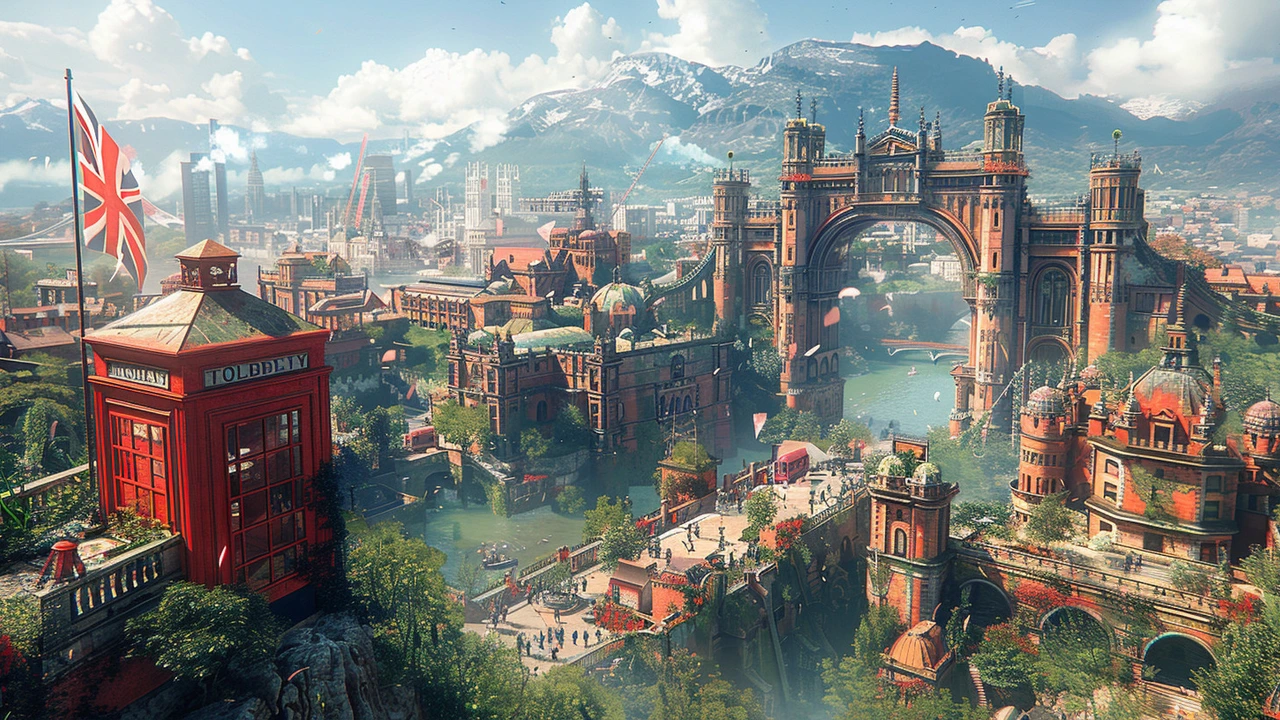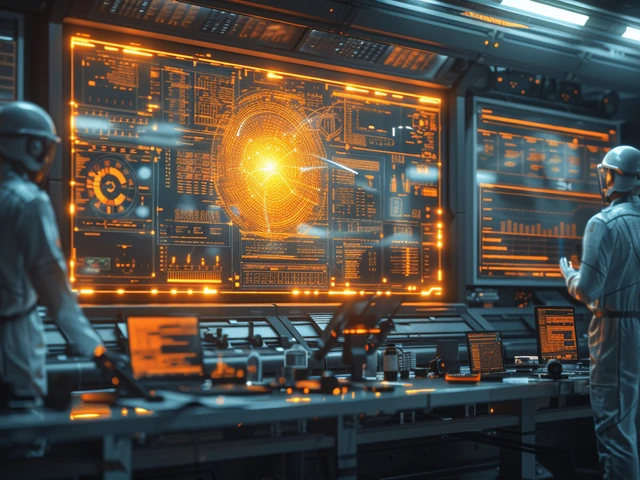Revolutionizing Entertainment: How AI is Transforming the Gaming Industry

Revolutionizing Entertainment: How AI is Transforming the Gaming Industry
Introduction to AI in the Gaming Industry
The gaming industry, a vast universe of interactive entertainment, has always been on the cutting edge of technology, constantly evolving to provide gamers with more immersive, engaging, and realistic experiences. Among the myriad of technological advancements championing this evolution, Artificial Intelligence (AI) stands out for its transformative impact. But what exactly does AI bring to the gaming table? From creating dynamic game environments to programming non-player characters (NPCs) that can learn and adapt, AI is not just a tool for developers; it's a game-changer for the entire industry.
Imagine stepping into a game where the world responds to your actions in realistic and unforeseen ways, where NPCs possess the ability to strategize, react, and communicate just like real humans. This is the promise of AI in gaming. Beyond just enhancing realism, AI technologies are paving the way for novel gameplay mechanics, making games more challenging, personalized, and engaging. As such, the integration of AI into gaming is reshaping what games are and what they can achieve, offering players experiences that were once thought impossible.
The Role of AI in Game Development and Design
Game development is a complex process that involves a blend of creativity, storytelling, programming, and design. Integrating AI into this process has enabled developers to accomplish tasks that would have been incredibly time-consuming or downright impossible in the past. One of the most notable contributions of AI is procedural content generation (PCG), which allows for the automatic creation of vast, detailed game worlds. This not only saves precious development time but also provides players with unique, unrepeatable experiences, as the game environment can change with each playthrough.
Moreover, AI is instrumental in crafting more sophisticated and believable NPCs. Gone are the days when NPCs were mere background elements with basic scripts. Now, thanks to AI, they can engage in complex interactions, show a range of emotions, and provide gamers with formidable challenges. This leap in NPC intelligence not only enhances the storytelling aspect of games but also drastically improves gameplay, making each encounter and conversation feel meaningful and rewarding.
Enhancing Player Experience with AI
The implementation of AI in games doesn't just benefit developers and game design; it directly impacts the player experience, bringing about a new era of personalized gaming. Adaptive difficulty is one such feature, where the game's challenge level adjusts in real-time based on the player's skill level. This ensures that the game remains accessible and enjoyable for a wide range of players, from novices to experts.
AI also plays a crucial role in creating immersive game narratives. Through techniques like natural language processing, AI can enable players to interact with game characters in more realistic and meaningful ways. This opens up new possibilities for storytelling, where players can influence the narrative through their choices and interactions, leading to a multitude of possible endings and storylines. The potential for deeply personal and variable gameplay experiences is immense, setting the stage for games that feel more like living, breathing worlds.
The Future of AI in Gaming
While the current applications of AI in gaming are impressive, the future holds even more promise. Emerging technologies such as machine learning and deep learning are set to further revolutionize the industry, enabling games that learn from and adapt to the player in unprecedented ways. Imagine games that evolve based on your playing style, or that can create entirely new content on the fly, ensuring that no two playthroughs are ever the same.
Furthermore, as virtual reality (VR) and augmented reality (AR) technologies continue to mature, the integration of AI will become even more crucial. AI could drive the behavior of virtual beings in VR worlds, making them indistinguishable from real humans, or overlay virtual content onto the real world in real-time for AR experiences. The potential for AI to enhance these technologies will usher in an era of gaming where the lines between the virtual and the real are increasingly blurred.
Challenges and Ethical Considerations
Despite its vast potential, the integration of AI into gaming is not without its challenges and ethical concerns. Issues such as data privacy, algorithmic bias, and the potential unemployment of game designers and writers due to automation are pressing concerns that need to be addressed. Furthermore, there's the risk of creating AI that's too good, leading to games that are frustratingly difficult or unsettlingly realistic.
To mitigate these issues, it's important for developers and the industry at large to establish guidelines and ethical frameworks for the use of AI in games. Transparency about how AI is used, ensuring the security of player data, and maintaining a balance between automation and human creativity are all crucial steps in ensuring that AI enhances the gaming experience without detracting from the human element that lies at the heart of creative storytelling.
About
CH Tech Development is a premier resource for the latest updates and insights in the world of technology development. We provide extensive information, articles, and guides on cutting-edge technological advancements. Explore our site to empower your knowledge about the dynamic field of tech development.
Latest Posts


AI Innovation: Unraveling Efficiency in Technology and Everyday Life
By Silas Hawthorne Feb 8, 2024

Coding for AI: Pioneering Strategies in Tech Development
By Larissa Bentley Apr 25, 2024

AI Tricks: The Blueprint for Tech Breakthrough
By Silas Hawthorne Jul 29, 2023

Write a comment